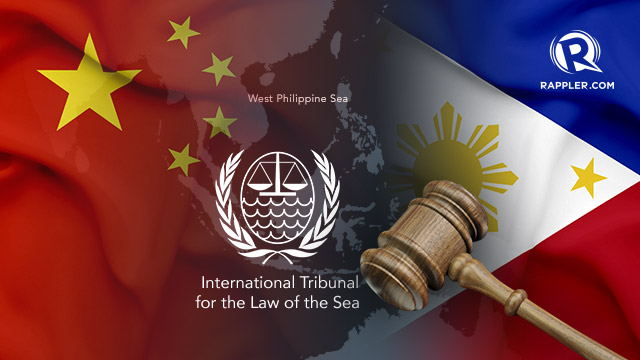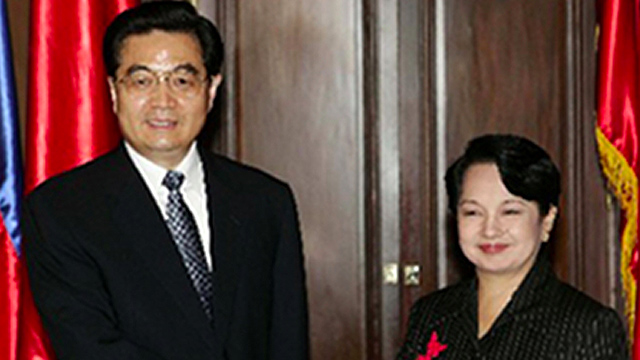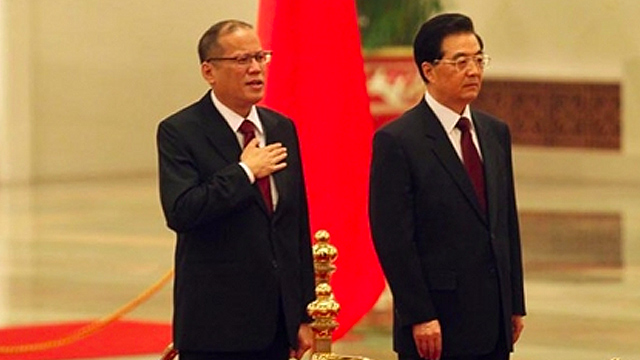SUMMARY
This is AI generated summarization, which may have errors. For context, always refer to the full article.

MANILA, Philippines – A day after the Philippines issued an 8-point statement to belie China’s “baseless” claim, China hit back at the Philippines for supposedly changing its “attitude and approach” toward their territorial dispute.
In a statement Tuesday, July 16, Chinese Foreign Ministry spokeswoman Hua Chunying blasted the Philippines for pushing for international arbitration to settle their West Philippine Sea (South China Sea) dispute.
“We regret that the Philippines stated that it has become impossible to continue bilateral discussions with China, and are dissatisfied with its refusal to diplomatic negotiation and closure of the door to dialogue. We are firmly opposed to the Philippines’ indifference to China’s lawful rights and interests and legitimate concerns as well as its willful act of pushing for international arbitration,” Hua said.
Hua said this after the Philippines’ Department on Foreign Affairs (DFA) on Monday, July 15, rebuffed China’s claim that the DFA lied in Belgium about the West Philippine Sea dispute. The DFA released an 8-point statement to prove it “had exhausted almost all political and diplomatic avenues” to settle the territorial row.
China has repeatedly rejected bringing the dispute before the International Tribunal for the Law of the Sea (ITLOS), and has instead proposed bilateral talks between the Manila and Beijing.
Hua said, “This position remains unchanged.”
Despite opposition from Beijing, the Philippines brought its complaint against China before ITLOS. The DFA on Tuesday said the arbitration process “is now officially under way.”
PH ‘changed its attitude’
In her statement, Hua also deplored the Philippines’ “attitude and approach” in handling the West Philippine Sea dispute. This claim echoed an international think-tank that said Beijing perceives the Philippines as “more provocative” under President Benigno Aquino III.
The spokeswoman recalled a previous agreement that ensured “sound cooperation” between both countries under former President Gloria Macapagal-Arroyo. “The two sides reached the important consensus of carrying out cooperation in a step-by-step manner and resolving bilateral disputes through negotiations.”

She referred to the Joint Marine Seismic Undertaking (JMSU) that the Arroyo administration entered into with China, as well as Vietnam. The 3 countries then agreed to conduct joint explorations of the disputed South China Sea.
Up to 80% of the JMSU site was within the Philippines’ exclusive economic zone, and legal experts told Newsbreak in 2008 that the government “effectively derogated the Philippines’ sovereignty over the marine resources around the province of Palawan.”
China, for its part, said the JMSU made a “positive contribution to stability, cooperation, and development of the South China Sea.”
Hua said: “However, it is regrettable that over recent years, the Philippines has changed its attitude and approach in handling the issue, went back on its consensus with China, broke its commitment in the (Declaration on the Conduct of Parties in the South China Sea), cast aside the framework of dialogue upheld by a majority of countries, refused to cooperate, aggravated the situation, and set off the incident of the Huangyan Island by harassing Chinese civilians with warships, casting a shadow over China-Philippine relations and peace and stability of the South China Sea.”
Ex-gov’t ‘can be bought’
The shift in the Philippines’ attitude came with the change in Philippine presidents, the International Crisis Group (ICG) said in a report in July 2012.
“The previous administration of Gloria Macapagal-Arroyo had been considerably more receptive to Beijing’s commercial incentives and was apparently willing to compromise Philippine claims in response,” the ICG said in its report, “Stirring Up the South China Sea II: Regional Responses.”
“China sees the Aquino government’s stronger stance as provocative, and has responded by increasing its presence in disputed areas,” the think-tank noted.

The ICG said Aquino “sought to undo the damage caused by his predecessor’s accession to the failed Joint Marine Seismic Undertaking, which he believes encouraged greater Chinese forcefulness.”
“The former government could be bought; the current government cannot,” said an ICG correspondence with a source it did not name.
“The Chinese are likely playing a waiting game,” the ICG added, “hoping that the government will eventually be out of power and a new government will enable them to return to their tried and true tactics.” – Rappler.com
China waving flag image from Shutterstock
Wooden Judge’s gavel image from Shutterstock
Philippines waving flag image from Shutterstock
Add a comment
How does this make you feel?
There are no comments yet. Add your comment to start the conversation.